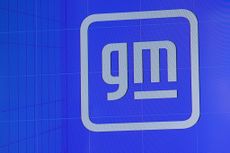How You — and Your Kids — Can Make Smart Student Loan Decisions
The commitments you make now have consequences that could last for decades. Being well-informed about student debt and repayment can make a world of difference.


Summer and fall are important seasons for families to research student loans. If your household includes a student preparing to apply to colleges, you’ll want to factor cost into the decision and be mindful of the potential amount of debt accrued.
If you have a recent college graduate, congratulations! If student loans were part of their funding plan, repayment of those loans will start soon, and the graduate should carefully evaluate the available options.
As a parent, your perspective can help your child make smart decisions around borrowing for college and the realities of taking on debt.

Sign up for Kiplinger’s Free E-Newsletters
Profit and prosper with the best of expert advice on investing, taxes, retirement, personal finance and more - straight to your e-mail.
Profit and prosper with the best of expert advice - straight to your e-mail.
First things first – limit your debt
As a financial planner, I recommend that families limit their education debt to federal direct student loans, if possible, or at the very least take them as the primary source of student debt. These loans are provided by the U.S. Department of Education, and they have several advantages:
- They offer reasonable interest rates and do not require a credit check. Currently, the interest rate for new loans to undergraduates is 4.53% (as of August 2019).
- They limit the amount that you can borrow. Holding yourself to this limit can help you choose a college that is financially reasonable and avoid accumulating too much debt. Over the full course of an undergraduate program, the most dependent students can borrow is $31,000.
- If you demonstrate financial need, some of these student loans may be subsidized. This means that the government will cover the interest until you graduate or leave college.
- They provide a variety of repayment options, including income-driven repayment plans.
- If you face economic hardship or unemployment, these student loans may allow for a temporary pause or reduction of loan payments through deferment or forbearance.
After you leave school – consider your federal direct loan repayment options
The standard repayment method for federal direct student loans is a fixed monthly payment for 10 years. Using the standard method (or even paying down your loans faster than that allotted time) limits the interest you’ll incur and helps you eliminate student debt in early adulthood. However, you may want to consider income-driven repayment plans if your loans are significant in relation to your post-college income.
There are four structurally similar income-driven federal repayment plans. One option, which has a potentially helpful combination of terms, is the “Pay As You Earn” plan (PAYE). Here’s how it works:
- Your monthly payment is no more than 10% of your discretionary income (in other words, your gross income minus 150% of poverty level income).
- Poverty level is the same throughout the continental U.S. (it’s higher for Alaska and Hawaii) and depends on your household size. It is adjusted annually for inflation.
- Payments are recalculated yearly via a recertification process. Under this program the required payment will never be higher than the original standard payment amount.
- After successfully making 20 years’ worth of payments, any remaining balance will be forgiven.
For example, suppose you graduate with $35,000 of federal direct student loans (including accrued interest) with a 4.53% rate. The standard repayment would be around $363 per month for 10 years. Under the PAYE plan, your payment would depend on your income relative to the poverty level. If you’re single with no dependents, your applicable poverty level is $12,490 per year, and 150% of that is $18,735. If you earn $40,000 per year, that makes your discretionary income $21,265. Your annualized payments would be 10% of that--$2,127--and dividing that amount by 12 would result in an initial monthly payment of $177.
At first glance, this looks great, since $177 is much lower than $363. But remember that you’ll be paying off your loans longer. And, if your income increases — let’s assume by 2 percentage points faster than inflation — your monthly payment will increase gradually, eventually reaching the $363 standard payment. In this scenario, it would take nearly 16 years to pay off your loans, as opposed to 10 years. Additionally, using this method means that you wouldn’t have any of your loan forgiven, and your total payments would be about $7,600 higher under the PAYE plan than with the standard plan.
However, there are reasons the income-driven plan may still be preferable:
- If your cash flow is tight, reducing the monthly payment could help you pay essential expenses without high-interest credit card debt.
- Alternatively, you could use the extra cash to increase your retirement plan contributions or other investments. While investment returns aren’t guaranteed, you could potentially benefit from returns higher than the loan interest rate.
- If you work for a government or not-for-profit organization, you could be eligible for Public Service Loan Forgiveness (PSLF). The benefit is that your loan could be forgiven after 10 years instead of 20. This program requires you to use one of the income-driven repayment plans.
- If PSLF doesn’t apply, but your loan balance is significant and your household income is modest, you may still benefit from having part of the balance forgiven. The table below shows income levels where potential forgiveness could make total cash outlays lower under the PAYE plan.
Adjusted Gross Income level where forgiveness could outweigh the longer repayment schedule
| Federal direct student loan balance | People in household 1 | People in household 2 | People in household 3 | People in household 4 |
|---|---|---|---|---|
| $7,000 | $18,000 | $24,000 | $29,000 | $34,000 |
| $15,000 | $21,000 | $27,000 | $32,000 | $37,000 |
| $23,000 (maximum undergrad subsidized loans) | $24,000 | $30,000 | $34,000 | $40,000 |
| $29,000 (approx. average ending debt for 4-year private colleges) | $27,000 | $32,000 | $37,000 | $42,000 |
| $35,000 (approx. undergrad maximum, including accrued interest) | $29,000 | $34,000 | $39,000 | $45,000 |
Source: T. Rowe Price calculations; average debt per studentloans.gov. Assumptions: Poverty levels for continental U.S. as of July 2019 (https://aspe.hhs.gov/poverty-guidelines); 4.53% interest rate; 2.4% inflation (for poverty levels and tax brackets); 4.4% income growth (2 points above inflation); federal tax law as of 2019, including brackets, student loan interest deduction and taxable loan forgiveness; state taxes are not considered. Does not reflect any interest on the cash savings from lower monthly payments--extra cash is assumed to be spent or held in a zero-interest account. Household size refers to the student borrower and his or her dependents.
Finally, pay attention to the details
- There is helpful information available at studentaid.ed.gov and studentloans.gov, including a repayment calculator to evaluate options for your specific situation.
- Follow the rules. It’s critical to complete recertification paperwork to capture any changes to your income or household size each year. You also need to make your payments on time. There are numerous reports that PSLF eligibility rules are being tightly enforced.
- If you choose an income-driven plan with investing or reducing high-interest debt in mind, remember that reaping these benefits takes discipline. Setting up automatic investments and budget guardrails can help enforce good habits.
- Remember that things can change over time — your income, marital status, dependents and other factors. Continue to re-evaluate your situation and whether lower payments still help you. You can always pay extra principal on federal loans without penalty.
Understanding the available student loan repayment options is important; the decisions that are made today can greatly affect your child’s financial situation in the future.

To continue reading this article
please register for free
This is different from signing in to your print subscription
Why am I seeing this? Find out more here

Roger Young is Vice President and senior financial planner with T. Rowe Price Associates in Owings Mills, Md. Roger draws upon his previous experience as a financial adviser to share practical insights on retirement and personal finance topics of interest to individuals and advisers. He has master's degrees from Carnegie Mellon University and the University of Maryland, as well as a BBA in accounting from Loyola College (Md.).
-
 GM Stock Accelerates After Earnings Beat
GM Stock Accelerates After Earnings BeatGeneral Motors beat expectations for the first quarter and raised its outlook for the year. Here's what you need to know.
By Joey Solitro Published
-
 Georgia Has a New Income Tax Rate for 2024
Georgia Has a New Income Tax Rate for 2024Tax Cuts Georgians now have a tax package containing income tax cuts, childcare relief, and potential property tax caps.
By Kelley R. Taylor Published
-
 Four Tips to Make Your Sales Presentation a Winner
Four Tips to Make Your Sales Presentation a WinnerBeing prepared and not being boring can go a long way toward persuading a potential customer to buy into what you’re offering.
By H. Dennis Beaver, Esq. Published
-
 What’s the Difference Between a CPA and a Tax Planner?
What’s the Difference Between a CPA and a Tax Planner?CPAs do the important number crunching for tax preparation and filing, but tax planners look at the big picture and come up with tax-saving strategies.
By Joe F. Schmitz Jr., CFP®, ChFC® Published
-
 Charitable Remainder Trust: The Stretch IRA Alternative
Charitable Remainder Trust: The Stretch IRA AlternativeThe SECURE Act killed the stretch IRA, but a properly constructed charitable remainder trust can deliver similar benefits, with some caveats.
By Brandon Mather, CFP®, CEPA, ChFEBC® Published
-
 Three Ways to Take Control of Your Money During Financial Literacy Month
Three Ways to Take Control of Your Money During Financial Literacy MonthBudgeting, building an emergency fund and taking advantage of a multitude of workplace benefits can get you on track and keep you there.
By Craig Rubino Published
-
 What Not to Do if an Employee or Loved One Is Kidnapped
What Not to Do if an Employee or Loved One Is KidnappedBusinesses need to have a crisis plan in place so that everyone knows what to do and how to do it. Sometimes, calling the authorities isn’t recommended.
By H. Dennis Beaver, Esq. Published
-
 Why You Shouldn’t Let High Interest Rates Seduce You
Why You Shouldn’t Let High Interest Rates Seduce YouWhile increased interest rates are improving the returns on high-yield savings accounts, that may not be an effective place to park your money for the long term.
By Kelly LaVigne, J.D. Published
-
 Need to Build an Emergency Fund? Seven Steps to Get There
Need to Build an Emergency Fund? Seven Steps to Get ThereHaving a safety net can mean peace of mind on top of being able to maintain your lifestyle if a financial emergency strikes.
By Justin Stivers, Esq. Published
-
 Which Type of Life Insurance Is Right for You?
Which Type of Life Insurance Is Right for You?Life insurance isn’t a one-size-fits-all option. Here are the differences between term life, whole life and indexed universal life insurance.
By Jay Dorso Published